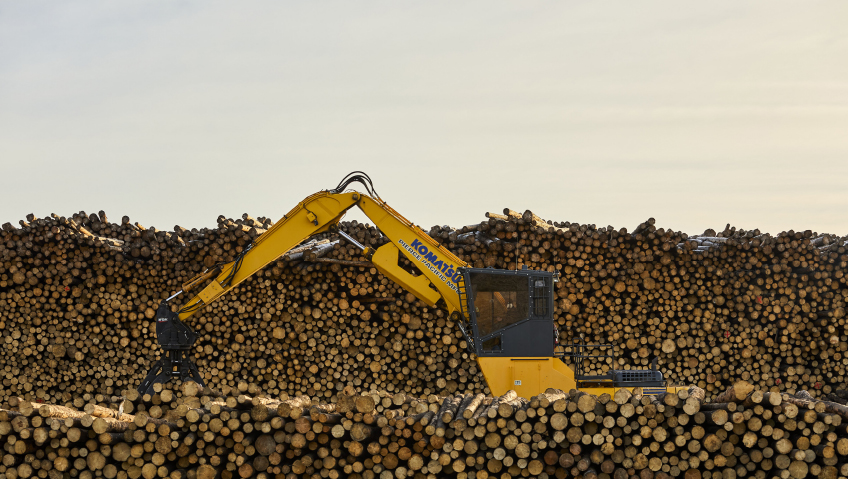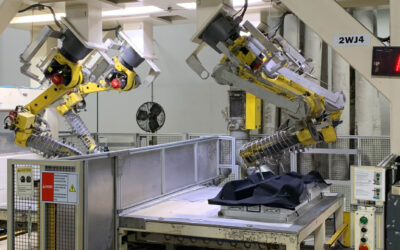La Crete Sawmills operates in La Crete, Alberta and serves clients across Canada. The business was formed in 1989 by nine founders native to the area, including the current president and major shareholder John Unger.
Well into its third decade, La Crete’s credo of high-standard mill operation has proven to be a lasting and successful one. With a specialty in spruce and aspen production, La Crete boasts an annual production volume of 100 plus million board feet through a two-line sawmill with two drying kilns, a planer, and a remanufacturing facility.
Lumber is a commodity item that will always be in demand. La Crete Sawmills has stayed on top of the ever-evolving technology and has continuously upgraded to stay competitive in this sophisticated environment. The latest upgrade was in summer of 2021.
The company’s main sawmill is fully computerized, built by Canadian sawmill and planer designer and manufacturer Comact. The mill, which was activated in 2007, can cut 1”x4” boards and 6”x6” timbers from the same log as the system is guided by machine intelligence and value-driven for the mill to cut precisely and quickly.
“If a customer calls with a specific load in mind,” says Unger, “we can cut a whole profile in minutes.” He is adamant that the key to the success of La Crete is the ideal of working together, and the people who have been with the company for the past thirty years. “Any corporation, from a lemonade stand to a sawmill, is only as good as its people…you can have as much iron as you want but, without people, it’s nothing.”
Unger touts the many workers who have not only been with the company since its inception but who have also introduced second-generation workers who are, by now, fully established.
The reputation for high quality and secure management at La Crete Sawmills extends beyond its work, as it has also gained a positive reputation and awards for its consistent approach to employee health and safety. Unger explains how every position in the business undergoes a regular hazard assessment from a health and safety manager on staff who ensures standards are always adhered to. A robust internal safety program includes monthly meetings to discuss improvements that can be made to the yard, from walkway specifics to added handrails and more, and an employee handbook details various health policies the company holds.
He reports that, in the summer of 2021, the company’s head of health and safety walked through the sawmill yard and met with its 160 staff members to ensure familiarity with the handbook and the safety protocols. Additionally, when power factor correction regulations came into Alberta, La Crete was one of the first businesses to become fully compliant. Safety and adhering to standards are vital parts of decision-making for the company and contribute to its considerable longevity in the lumber industry.
The COVID-19 pandemic is still ongoing in many countries today but, thankfully, it has not hindered regular operations at La Crete; in fact, Unger admits that, as far as its threat to destabilize the business or its customers, he was unconvinced it would affect operations to any significant degree initially. The company quickly adapted and modified safety protocols to mitigate the spread of coronavirus internally with measures such as having workers sign in at the start of every shift to confirm their status, sick workers being asked to stay home, and supervisors keeping tabs on workers’ health. The office itself was locked down to regular customer visitation, and the workforce practiced enhanced sanitary measures and personal hygiene.
Not only was the company’s bottom line unaffected, but it also soon began running double shifts after the start of the pandemic because of nearby wildfires. Company workers sought to be good stewards of the forest and clean up as much burnt wood as possible, thereby increasing work volume. Sidestepping one of the biggest financial hardships of the century is something not many businesses can claim to have done in the past year and a half, but La Crete seems well prepared to adapt to any circumstance through rigorous internal measures.
Outside of its successes, Unger observes that the lumber industry is currently quite strong. Lumber prices went to a surprising high in mid-2021 which proved somewhat tumultuous, but the supply and demand for it raised the market for companies like La Crete in turn. “We have had a very good year,” he assures, and the future of lumber is looking bright thus far.
As the company sports a considerable fleet of trucks—a necessity for hauling its product to customers in the far North—new rules and regulations in the transportation industry could potentially stymie new workers who want to drive a rig right away, limiting job opportunities and potentially lessening the number of able drivers needed to ship product across Canada. As a result of an accident in 2018 in Saskatchewan that took the lives of sixteen people, incoming workers to the trucking industry now must undergo much stricter and longer periods of training than before, measures which Unger feels limits the number of people entering the industry.
La Crete will also likely continue to experience challenges due to Canadian travel restrictions based on COVID-19 vaccination status, which will make meeting with customers much more difficult than in more conventional times. Still, the company will continue addressing these challenges as they arise, and aims to be proactive in seeing them coming.
Exciting growth continues for La Crete’s facilities. The company is currently putting in a biomass burner that will burn its supply of bark much more effectively. Typically, La Crete sells off its waste and residual materials—white fibre, sawdust, shavings, and chips—for pulp; in addition, the company also purchases other mills’ leftovers to convert into wood pellets, an endeavour that produces 100,000 tonnes of wood pellets that ship across North America for use as fuel or animal bedding.
To dry the sawdust more rapidly, the new bark burner will draw the heat to the drums.
Unger notes that the company also recently installed an additional hundred-tonne truck weigh scale to complement its fleet of twenty-four trailer trucks, as part of its commitment to keep its fleet upgraded.
The company is constantly staying on top of new industry developments, be it new technology or incoming problems to solve. Its simple philosophies of working together and getting the job done properly and on time have served it well for dozens of years and are tried-and-true methods to staying relevant in a centuries-old industry.













